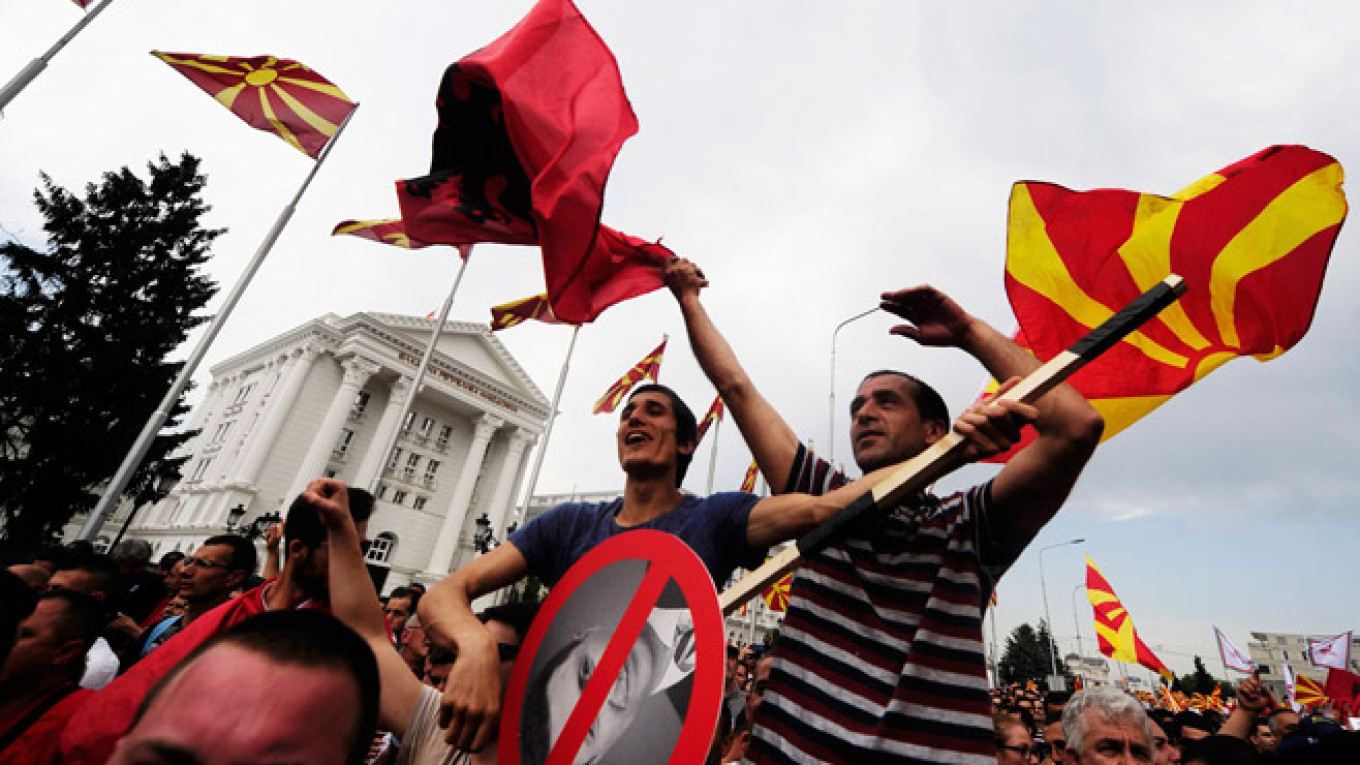Russia accused "Western organizers" on Saturday of trying to foment a "color revolution" in the troubled former Yugoslav republic of Macedonia, where political tensions are building ahead of an opposition rally on Sunday.
"Color revolution" is a term often used to describe popular uprisings in the former Soviet Union, including Ukraine, where Moscow also accuses the West of deliberately meddling in local politics to further its interests.
In a statement on the Macedonian crisis, Russia's Foreign Ministry cited Serbian media reports about the arrest of a citizen of Montenegro accused of helping what Moscow called "Albanian extremists" operating in Macedonia.
"[This is] convincing evidence … of attempts to push the country into the abyss of 'color revolution,'" it said.
"This is also evidence that Western organizers of such catastrophic scenarios prefer to realize them with the hands of others," the ministry said, drawing a parallel with Ukraine.
Moscow accuses the West of helping to engineer the overthrow of Ukraine's pro-Russian president Viktor Yanukovych after mass street protests in early 2014. He then fled to Russia.
In Macedonia, opponents of Prime Minister Nikola Gruevski plan to hold a rally on Sunday to demand his resignation over wire-tap disclosures that appear to indicate widespread abuse of office by senior government officials.
The small Balkan state is also reeling from a bloody gun battle last weekend during a police raid on an ethnic Albanian neighborhood of northern Macedonia that left 18 people dead — 10 ethnic Albanians described by the government as "terrorists" and eight policemen.
The European Union and NATO have called for a transparent investigation into last week's killings.
Russia has often been critical of Western policy in the Balkans. It strongly backed the Serbs — fellow Orthodox Christian Slavs — in their conflict with their mainly Muslim ethnic Albanian minority in the 1990s.
Moscow opposed granting independence to Kosovo, formerly a Serbian province with a mainly ethnic Albanian population. Macedonia, just to the south of Kosovo, is also home to a large ethnic Albanian minority.
A Message from The Moscow Times:
Dear readers,
We are facing unprecedented challenges. Russia's Prosecutor General's Office has designated The Moscow Times as an "undesirable" organization, criminalizing our work and putting our staff at risk of prosecution. This follows our earlier unjust labeling as a "foreign agent."
These actions are direct attempts to silence independent journalism in Russia. The authorities claim our work "discredits the decisions of the Russian leadership." We see things differently: we strive to provide accurate, unbiased reporting on Russia.
We, the journalists of The Moscow Times, refuse to be silenced. But to continue our work, we need your help.
Your support, no matter how small, makes a world of difference. If you can, please support us monthly starting from just $2. It's quick to set up, and every contribution makes a significant impact.
By supporting The Moscow Times, you're defending open, independent journalism in the face of repression. Thank you for standing with us.
Remind me later.


